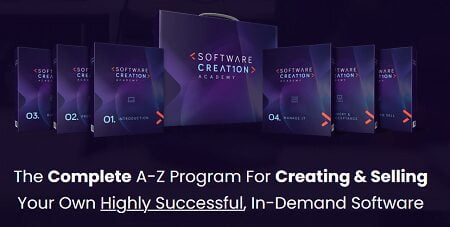
Ardanlabs – Ultimate Go (2020) | 19.1 GB
This course teaches how to write better, more idiomatic and performant code in Go with a focus on micro-level engineering decisions. The course begins with the a focus on Go internals that are critical to understanding the core tradeoffs the language makes on readability, simplicity and performance.
01.
Design Guidelines
1.1 Prepare Your Mind
1.2 – Productivity vs. Performance
1.3 – Correctness vs. Performance
1.4 – Code Reviews
1.5 – If Performance Matters
02.
Memory & Data Semantics
2.1 – Variables
2.2 – Struct Types
2.3.1 – Pointers-Part 1 (Pass by Values)
2.3.2 – Pointers-Part 2 (Sharing Data)
2.3.3 – Pointers-Part 3 ( Escape Analysis)
2.3.4 – Pointers-Part 3 ( Stack Growth)
2.3.5 – Pointers-Part 3 ( Garbage Collection)
2.4 – Constants
03.
Data Structures
3.1 – Arrays-Part 1 (Mechanical Sympathy)
3.2.1 – Arrays-Part 2 (Semantics)
3.2.2 – Arrays-Part 3 (Range Mechanics)
3.3.1 – Slices-Part 1 (Declare, Length & Reference Types)
3.3.2 – Slices-Part 2 (Appending Slices)
3.3.3-Slices-Part 3 (Taking Slices of Slices)
3.3.4 – Slices-Part 4 (Slices & References)
3.3.5 – Slices-Part 5 (Strings & Slices)
3.3.6 – Slices-Part 6 (Range Mechanics)
3.4 – Maps
04.
Decoupling
4.1.1 – Methods-Part 1 (Value & Pointer Semantics)
4.1.2 – Methods-Part 2 (Function/Method Variables)
4.2.1 – Interfaces-Part 1 (Polymorphism)
4.2.2 – Interfaces-Part 1 (Method Sets & Address of Value)
4.2.3 – Interfaces-Part 3 (Storage by Value)
4.2.4 – Interfaces-Part 4 (Type Assertion)
4.3 – Embedding
4.4 – Exporting
05.
Composition
5.1 – Grouping Types
5.2.1 – Decoupling-Part 1
5.3.1 – Conversion & Assertions-Part 1
5.3.2 – Conversion & Assertions-Part 2
5.4 – Interface Pollution
5.5 – Mocking
06.
Error Handling
6.1 – Default Error Values
6.2 – Error Variables
6.3 – Types as Context
6.4 – Behavior as Context
6.5 – Find the Bug
6.6 – Wrapping Errors
07.
Packaging
7.1 – Language Mechanics & Design Guidelines
7.2 – Package-Oriented Design
08.
Goroutines
8.1 – OS Scheduler Mechanics
8.2 – Go Scheduler Mechanics
8.3 – Creating Go Routines
09.
Data Races
9.1 – Managing Data Races
10.
Channels
10.1 – Signaling Semantics
10.2 – Basic Patterns
10.3 – Fan Out
10.4 – Wait for Task
10.5 – Pooling
10.6 – Fan Out Semaphore
10.7 – Fan Out Bounded
10.8 – Drop Pattern
10.9 – Cancellation Pattern
11.
Concurrency Patterns
11.1 – Failure Detection
12.
Testing
12.1 – Basic Unit Testing
12.2 – Table Unit Testing
12.3 – Mocking Web Server Response
12.4 – Testing Internal Endpoints
12.5 – Sub Tests
12.6 – Code Coverage
13.
Benchmarking
13.1 – Basic Benchmarking
13.2 – Validate Benchmarking
13.3 – CPU-Bound Benchmarking
13.4 – IO-Bound Benchmarking
14.
Profiling & Tracing
14.1 Profiling Guidelines
14.2 Stack Traces
14.3 Micro Level Optimization
14.4 Macro Level Optimization
14.5 Execution Tracing
Homepage:
https://education.ardanlabs.com/courses/ultimate-go





